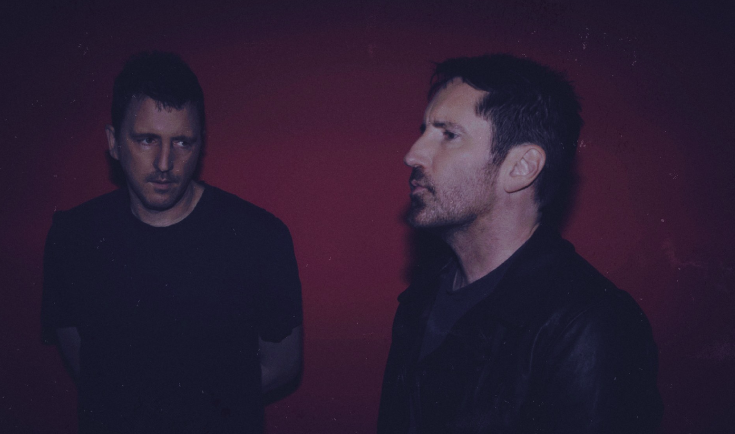Nine Inch Nails Return Means Trent Reznor is Giving Utterly Fascinating Interviews Again

Nine Inch Nails’ return not only gives us new music but the world according to Reznor as Vulture is the latest to chronicle the fascinating mastermind behind one of the most successful rock groups in history.
An enthralling read from start to finish, Reznor touches on more current topics like Trump (“He’s a fucking vulgarian”), Radiohead (“They create an aura that makes you more interested in what they’re doing”), the popularity of EDM (“I’ve had many agent types over the years say, ‘EDM is the future.’ No, it’s not. It’s fucking not.”) and a number of anecdotes from the band’s history including dealing with the “humility” of dealing with NIN’s mortality after the less-than-successful album The Fragile. “No one points out that moment your career changes,” Reznor says.
One of the more notable exchanges occurs when Reznor describes the current landscape of how modern artists use technology, particularly with the accessibility of the internet leading to the demystification of artists. “Growing up, I didn’t know what Pink Floyd looked like,” he says. “and I didn’t need to know. In my mind, they looked like fucking wizards, man.”
The conversation leads into the weight of corporate sponsors on music. “When I hear Grizzly Bear in a Volkswagen commercial, it kind of bums me out. I like Grizzly Bear a lot; I don’t want to think of a fucking car when I hear their song,” he explained. “But somewhere along the line it became okay to get in bed with a sponsor. More specifically it became okay for rock bands to talk about.”
He recalled a conversation with a “well-known EDM artist” that consisted of worrying about upsetting sponsors. “That’s not what the spirit of being a musician or a rock star is. Why are these people even making music? I’m doing it because I have to get something out and I feel vital when it resonates with someone else. When I can get paid, too, that’s a nice consequence.”
“Rock’s not fucking dead,” Reznor continued. “It’s not in its most innovative state at the moment, but the feeling…that’s not going away.”
He also touches on longtime friend David Bowie. “I needed heroes. David Bowie was a fucking alien, you know? As it happens, he was a fucking alien. I was lucky enough to be friends with him and he was even cooler than I’d thought.”
Of all the fascinating clips in this lengthy discussion is Reznor’s reflection on himself as he recalls NIN’s meteoric rise following the success of The Downward Spiral. “Back then the fuel for the band was rage,” Reznor recalls as he talks about initially connecting with the audience following Pretty Hate Machine. “It was a magical feeling, and one of the few experiences in my life where I felt like I was in the right place at the right time.”
He admits that the feeling wasn’t helped by his excessive drug and alcohol abuse in subsequent years, and that the shows turned into “some kind of weird ritual” that was “great and also alienating.” Why alienating? Reznor explains further.
I remember the feeling of walking off stage at the end of the night, and everyone else is gone, and I’m alone in a back room, and I still don’t feel like I can fit in anywhere — even though I was in an arena full of people that came to see some version of me. It was just weird. And it got even weirder after The Downward Spiral hit and we were playing arenas. You’d meet people and realize you’re not even you anymore. You’re the version of you that they’ve read about. Then you’re thinking, I don’t know who I am anymore either. Am I the vampire I read about in a magazine? Am I acting like I should act? Because no one’s treating me like a normal person anymore. Set those feelings against a few too many drinks a day and a warped scenario starts to emerge.



















